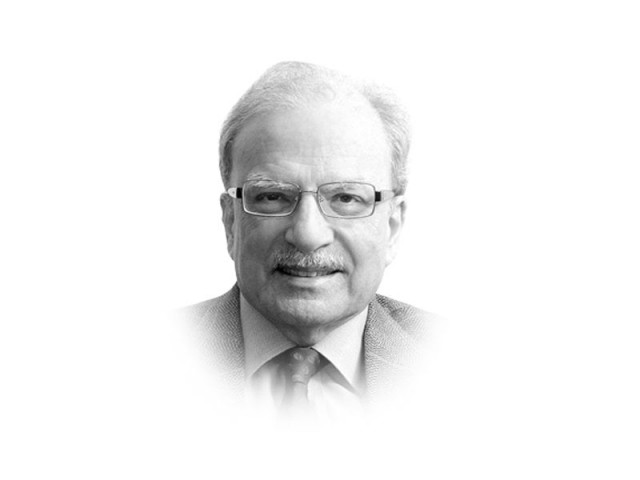Some questions about Pakistan’s future
In the wake of PTI's election victory

The writer is a former caretaker finance minister and served as vice-president of the World Bank
Although with the elections of 2008, democracy had made a comeback of sorts but the system that was put in place gave enormous power to a narrow elite. It was not an inclusive system as defined by Daron Asemoglu and James Robinson in their widely read book Why Nations Fail. Both the Pakistan Peoples Party (PPP) and the Pakistan Muslim League-Nawaz (PML-N) sat on top of an exclusive political system. The fact that one of these identified itself by the name of its president in is in itself an indication that they were owned by families and did not really represent the people. They used power for personal gain, not necessarily for the good of the people who placed them in power.
Thanks to the efforts being made to expose the misdeeds of the previous administrations there are many visible signs of corrupt practices on the part of those who worked for the previous administrations. One of these is to be seen on the left-hand side of the Kashmir Highway as you leave the Motorway and head towards Islamabad. Scores of buildings constructed on the land that had been designated as the green belt have been demolished. Some of them were elaborate structures on which those who owned them must have spent a great deal of money. They were built after large bribes were paid to those who could authorise their construction even though they violated the capital city’s master plan. These types of activities led to the buildup of an enormous amount of resentment on the part of a significant segment of the population.
These observations lead me to ask a number of questions about Pakistan’s future. Finding answers to these are important for the making of public policy. The answers are also important if Imran Khan and his PTI are to repeat the 2018 performance in 2023 when the next set of elections are due to be held. Before asking these questions I would like to make a general comment. Good public policy should result from an examination of data. Intuitions and gut feelings are fine but most often policies based without evidence are likely to lead the country astray.
Imran Khan and the PTI would do well to focus on finding answers to some of the following questions. Who voted for them in the 2018 elections? What are the reasons that Khan attracted so many more voters to his side in 2018 than in 2013? To which age group these people belong and where are they located? It is my hunch that of the 30 million or so voters who came of age in 2018 a significant proportion voted for the PTI.
What are the aspirations of these people and what kind of public policies need to be adopted to meet them? What kind of changes are needed in the structure of the administration to meet the needs of the PTI support base? Should the country’s large provinces be split in smaller administrative units to deliver better results to the PTI base? An answer to this question should help to define the role of the state. What works in one province may not work in other places or at the federal level. Some Western analysts have come to believe that less than a sterling performance by India’s Narendra Modi is the result of his failure to repeat the Gujarat experience at the national level.
How could Imran Khan expand his support base? In what way should he communicate with the people of his country? How can he and his party change the narrative of Pakistan? What are the determinants of economic growth and social change that should be factored into the design of a medium- and long-term development programme? Should Pakistan replicate the experience of the tiger economies of East Asia and build an export-oriented industrial base relying on cheap labour? Or, should it rely on the vast potential of the agriculture sector and export high value-added agricultural and animal products to the high-income countries in the neighbourhood? And then there are a host of questions I have been asking in this space about Pakistan’s relations with the world outside.
To find answers to these and many other questions will need the involvement of people with expertise in many disciplines. Economists, sociologists, political scientists, historians and anthropologists will need to come together and debate these issues and produce a series of policy papers for the government to act upon. However, the content and directions of these disciplines are changing. Notable in their development is the generation and use of data to understand causality and to prove hypotheses. Now practitioners — not just economists but in other disciplines as well — deploy impressive and clever empiricism. Question-driven and issues-first approach has become popular with the academia.
Published in The Express Tribune, January 7th, 2019.
Like Opinion & Editorial on Facebook, follow @ETOpEd on Twitter to receive all updates on all our daily pieces.















COMMENTS
Comments are moderated and generally will be posted if they are on-topic and not abusive.
For more information, please see our Comments FAQ